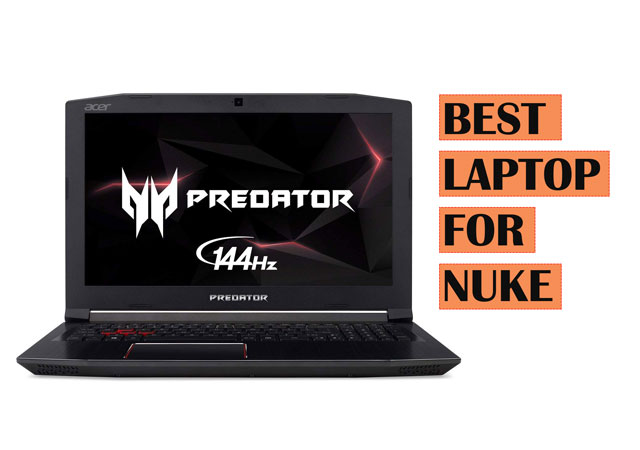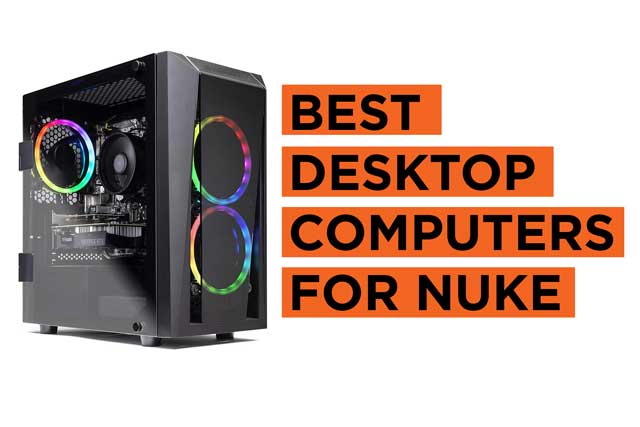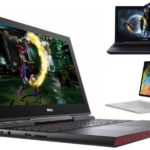Nuke is a core part of your workflow If you’re in visual effects, motion graphics, or cinematic post-production. As one of the industry’s most powerful node-based compositing platforms, Nuke is relied on by VFX studios, compositors, roto/paint artists, and motion designers worldwide. But this power comes with a price: Nuke demands serious hardware.
In this guide, we’ll help you choose the best laptops for running Nuke, systems built to keep up with 4K timelines, deep compositing, heavy scripts, and real-time playback.
Nuke isn’t just another creative tool, it’s a data-intensive, GPU-accelerated, multi-threaded powerhouse. If your laptop isn’t optimized for its specific needs, you’re constantly compromising: lower resolutions, proxy modes, slower caching, or choppy playback.
What makes Nuke especially challenging to support is its hybrid hardware dependency:
- It’s multi-threaded for rendering, caching, and processing large scripts.
- It offloads key processes to the GPU, especially when using GPU-accelerated nodes (like ZDefocus or Kronos).
- It consumes huge amounts of RAM, particularly with deep compositing, 3D camera projections, or high-res EXRs.
- It demands fast storage for real-time playback and massive file read/write operations.
Choosing the right laptop means balancing all of these.
We’ve analyzed how Nuke performs in studio environments, mapped its node behavior to hardware bottlenecks, and reviewed performance: from roto/paint and green screen keying, to multi-channel EXR comping and deep data processing.
What you need is a laptop that delivers stability, speed, and scalability across every compositing phase—from ingest to delivery.
Let’s take a look at what really matters when evaluating a laptop for Nuke:
CPU (Processor)
Nuke thrives on multi-core CPUs during script rendering, playback caching, and multithreaded operations like scanline rendering and 3D transformations. At the same time, high clock speed improves node responsiveness.
We recommend:
- Intel Core i7/i9 13th or 14th Gen (H/X series)
- AMD Ryzen 9 7945HX or newer
- Apple M3/M4 Max (for Mac workflows)
- Look for 8+ performance cores, with clock speeds over 4.5GHz for optimal performance
GPU (Graphics Card)
Many of Nuke’s newer nodes are GPU-accelerated using OpenCL or CUDA. Kronos, MotionBlur2, VectorDistort, ZDefocus, and other nodes benefit greatly from a powerful discrete GPU.
Our recommendation:
- NVIDIA RTX 4070 / 4080 or RTX A-series (A2000 and above)
- Apple M2/M3/M4 Max (unified memory benefits GPU-accelerated workflows)
- At least 8GB of VRAM, with 12GB+ preferred for 4K/8K projects
RAM (Memory)
Nuke stores a lot of node data, cache, and high-resolution image sequences in memory. Especially when compositing multi-channel EXRs or doing deep compositing, RAM becomes your safety net.
We recommend:
- 32GB DDR5 RAM minimum
- 64GB or more for professional and studio-level users
- Unified memory (Apple) of 32–64GB+ for Mac users
Storage (SSD)
Speed matters. Your SSD affects timeline scrubbing, caching, render write times, and loading sequences.
Our suggestion:
- 1TB NVMe SSD (PCIe Gen 4) for high I/O throughput
- Consider dual-drive options for separating OS/apps from media/cache
Display
Color accuracy is critical in compositing. A high-fidelity screen lets you trust your blacks, track details, and match plates perfectly.
Look for:
- 15.6″ or 17.3″ IPS or OLED displays
- 100% sRGB or DCI-P3 color gamut
- 4K UHD is ideal for 4K timelines and precision VFX
To future-proof your setup, here’s what we recommend as a starting point:
- CPU: Intel Core i7/i9 (13th/14th Gen), AMD Ryzen 9 7000+, or Apple M3 Max
- GPU: NVIDIA RTX 4070+, RTX A3000+, or Apple M3 Pro/Max GPU
- RAM: 32GB DDR5 (64GB for heavy-duty compositing)
- Storage: 1TB NVMe SSD (with high read/write speeds)
- Display: 15.6”+ FHD+ or 4K with professional color calibration
- Ports: USB-C, HDMI 2.1, Thunderbolt 4, and SD reader for media workflows
- Operating System: Windows 11 Pro, macOS Sonoma, or Linux (if studio-standard)
You can also have a look at the best laptop for Houdini.
Best 2026 Laptops for Nuke:
Contents
- GIGABYTE G5 KF 15.6 FHD 1920x1080 144Hz, NVIDIA GeForce RTX 4060
- HP OMEN 16 16.1 FHD 165Hz Gaming Laptop (Intel 13th Gen Core i7-13700HX, 32G DDR5 RAM, 1TB SSD, Geforce RTX 4060 8GB)
- HP OMEN 17t 17.3 240Hz 2K QHD IPS Gaming Laptop 13th Gen (Intel i9-13900HX 24-Core, 64GB DDR5
- Lenovo Legion Pro 5i Gaming Laptop, 16 WQHD IPS 165Hz Display, GeForce RTX 4070, Intel 13th Gen i9-13900HX
- ASUS Flagship ROG Zephyrus M16 Gaming Laptop 16 QHD+ IPS 240Hz 13th Gen Intel 14-core i9-13900H
- ASUS ROG Strix G16 (2023) Gaming Laptop, 16” 1610 FHD 165Hz, GeForce RTX 4060, Intel Core i7-13650HX
GIGABYTE G5 KF 15.6 FHD 1920x1080 144Hz, NVIDIA GeForce RTX 4060 |
|
|---|---|
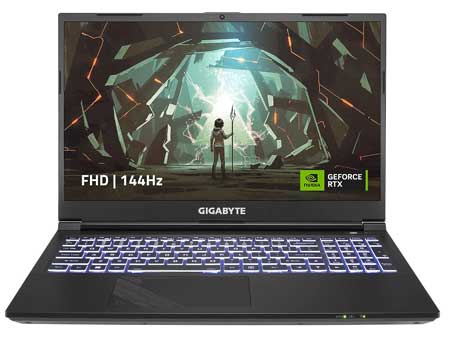 Check This On Amazon |
|
| CPU | 12th Gen Intel Core i5-12500H |
| GPU | NVIDIA GeForce RTX 4060 |
| Display Size | 15.6 inches |
| Display Resolution | 1920 x 1080 pixels |
| RAM | 8GB |
| Storage Space | 512GB |
| Operating System | Windows 11 |
| Ports | 1x Thunderbolt 4 (Supports Power Delivery), 1x HDMI 2.1, 1x Mini DP 1.4 (120Hz), 1x USB 3.2 Gen1 (Type-A), 1x RJ45, 1x Audio Combo Jack, 1x DC In |
| Dimensions (L x W x H) | 14.2 x 9.4 x 0.94 inches |
| Weight | 4.39 pounds |
| Advantages | Good entry laptop, Moderately priced |
| Disadvantages | Storage space |
HP OMEN 16 16.1 FHD 165Hz Gaming Laptop (Intel 13th Gen Core i7-13700HX, 32G DDR5 RAM, 1TB SSD, Geforce RTX 4060 8GB) |
|
|---|---|
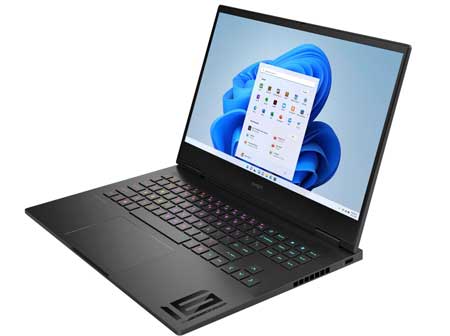 Check This On Amazon |
|
| CPU | Intel 13th Gen Core i7-13700HX |
| GPU | Geforce RTX 4060 8GB |
| Display Size | 16.1 inches |
| Display Resolution | 1920 x 1080 |
| RAM | 32G DDR5 RAM |
| Storage Space | 1TB SSD |
| Operating System | Windows 11 |
| Ports | USB 3.2 Gen 1.0 Type-A 5 Gbps signaling rate (HP Sleep and Charge), USB 3.2 Gen 1.0 Type-A 5 Gbps signaling rate, RJ-45 Ethernet port, |
| Dimensions (L x W x H) | 14.53 x 0.93 x 10.21 inches |
| Weight | 5.4 pounds |
| Advantages | Performance |
| Disadvantages | Heavy |
HP OMEN 17t 17.3 240Hz 2K QHD IPS Gaming Laptop 13th Gen (Intel i9-13900HX 24-Core, 64GB DDR5 |
|
|---|---|
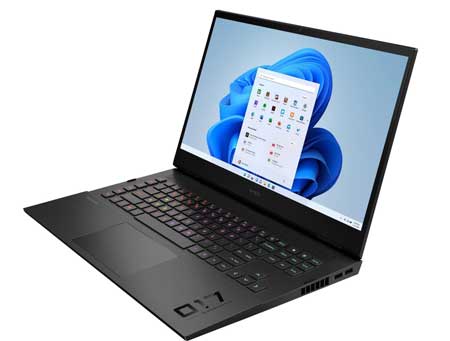 Check This On Amazon |
|
| CPU | Intel i9-13900HX 24-Core |
| GPU | GeForce RTX 4090 16GB |
| Display Size | 17.3 inches |
| Display Resolution | Quad HD (2560x1440) |
| RAM | 64GB DDR5 |
| Storage Space | 2TB PCIe NVMe SSD |
| Operating System | Windows 11 |
| Ports | HDMI, Audio, Ethernet, USB |
| Dimensions (L x W x H) | 10.32 x 15.65 x 1.5 inches |
| Weight | 6.2 pounds |
| Advantages | Very good performance, Good display, Large storage |
| Disadvantages | Might be heavy for some people |
Lenovo Legion Pro 5i Gaming Laptop, 16 WQHD IPS 165Hz Display, GeForce RTX 4070, Intel 13th Gen i9-13900HX |
|
|---|---|
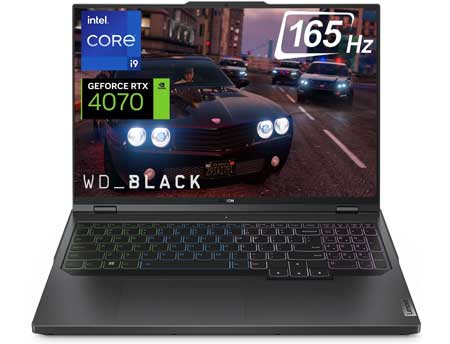 Check This On Amazon |
|
| CPU | 13th Gen Intel Core i9-13900HX |
| GPU | NVIDIA GeForce RTX 4070 (8GB GDDR6) |
| Display Size | 16-inch |
| Display Resolution | 2560 x 1600) |
| RAM | 64GB DDR5 SDRAM |
| Storage Space | 2TB + 2TB PCIe NVMe M.2 SSD |
| Operating System | Windows 11 |
| Ports | 2 x USB Gen 2 Type-C, 4 x USB Gen 1 Type-A, 1 x HDMI, 1 x RJ-45, 1 x Headphone/microphone combo |
| Dimensions (L x W x H) | 14.31 x 10.25 x 1.06 inches |
| Weight | 5.6 pounds |
| Advantages | Good performance, Quality display |
| Disadvantages | N/A |
ASUS Flagship ROG Zephyrus M16 Gaming Laptop 16 QHD+ IPS 240Hz 13th Gen Intel 14-core i9-13900H |
|
|---|---|
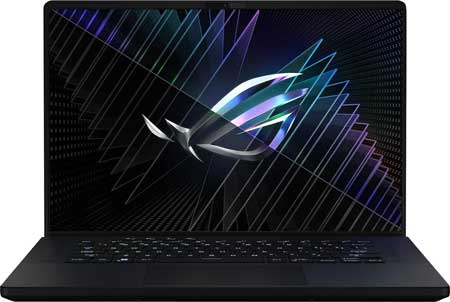 Check This On Amazon |
|
| CPU | 13th Gen Intel 14-core i9-13900H Processor |
| GPU | NVIDIA GeForce RTX 4070 8GB |
| Display Size | 16" QHD+ |
| Display Resolution | (2560x1600) IPS |
| RAM | 32GB DDR5 SDRAM |
| Storage Space | 1TB Solid State Drive |
| Operating System | Windows 11 |
| Ports | 1 x Thunderbolt 4, 1 x USB-C 3.2, 2 x USB-A 3.2, 1 x HDMI 2.1 FRL, 1 x 3.5mm Combo Audio Jack |
| Dimensions (L x W x H) | 9.69 x 13.98 x 0.88 inches |
| Weight | 4.64 pounds |
| Advantages | Lightweight, Good performance, Quality Display |
| Disadvantages | Price |
ASUS ROG Strix G16 (2023) Gaming Laptop, 16” 1610 FHD 165Hz, GeForce RTX 4060, Intel Core i7-13650HX |
|
|---|---|
 Check This On Amazon |
|
| CPU | 4.9 GHz core_i7 |
| GPU | NVIDIA GeForce RTX 4060 |
| Display Size | 16 Inches |
| Display Resolution | 1920 x 1200 pixels |
| RAM | 16 GB DDR5 |
| Storage Space | 512 GB SSD |
| Operating System | Windows 11 |
| Ports | USB, Ethernet, Audio |
| Dimensions (L x W x H) | 13.94 x 0.89 x 10.39 inches |
| Weight | 5.51 pounds |
| Advantages | Good performance |
| Disadvantages | Storage space may be inadequate for some people |
Take a look at the best laptops for Maya.

